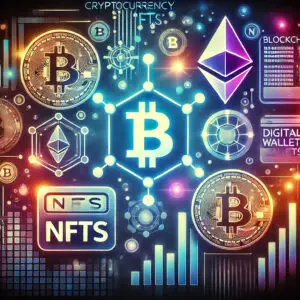
The Crypto Times
As technology continues to advance, artificial intelligence (AI) is poised to reshape many sectors, including higher education. The intersection of AI and academia is gaining attention, and at SXSW EDU 2025, attendees can expect an in-depth look at how AI will influence learning environments, student engagement, and administrative functions. This development mirrors the transformations we’ve seen in the world of cryptocurrency, where blockchain and NFTs have already started disrupting traditional systems. As The Crypto Times has highlighted, the rise of AI is just as impactful, but how will it play out in education? Let’s explore.
AI in Higher Education: Revolutionizing the Learning Experience
As we head into SXSW EDU 2025, AI is beginning to demonstrate its ability to change how students interact with their coursework. Personalized learning powered by AI has the potential to revolutionize traditional teaching methods. AI systems can analyze vast amounts of student data in real-time, offering tailored educational content that adapts to each student’s unique learning style. This is similar to how cryptocurrency systems function—tailoring financial solutions to users through decentralized technology.
Imagine a future where every student receives content personalized to their learning needs, with real-time feedback and automatic adjustments. Just like the rise of cryptocurrency and blockchain technologies, which prioritize security, efficiency, and transparency, AI could also use blockchain to store data in a secure, tamper-proof manner, providing students with the ability to monitor their academic progress securely.
1. Personalized Learning Through AI
One of the most exciting prospects of AI in higher education is its ability to facilitate personalized learning. By utilizing adaptive learning platforms, universities can create a curriculum that adjusts based on the pace and progress of individual students. These systems track student performance and can even predict where students might struggle, offering solutions before issues arise. This approach mirrors the way cryptocurrency systems optimize financial transactions—tailoring solutions to individual users to create a more seamless experience.
Moreover, as more students seek degrees in cryptocurrency, blockchain, and NFTs, AI could play a role in teaching these complex subjects in a way that suits individual learning styles. AI-powered educational tools could help demystify these emerging fields and offer real-world applications, much like how crypto news is revolutionizing the way people understand digital assets.
2. Transforming the Classroom and Administrative Efficiency
The Crypto Times has discussed the growth of cryptocurrency and its impact on the global financial system, but what about AI’s potential to transform the classroom and administration? AI can help educators deliver smarter lessons, offering tools like intelligent tutoring systems to assist students outside of class hours. These systems can provide instant feedback, guide students through difficult material, and support individual learning needs.
On the administrative side, AI can streamline processes like admissions, scheduling, and grading. Universities could use AI to manage massive amounts of data quickly and efficiently, improving the overall student experience. Much like how cryptocurrency has simplified financial transactions through automation, AI could automate time-consuming administrative tasks, allowing educators to focus more on teaching and mentoring.
3. NFTs in Higher Education: Credentialing and Verification
An exciting development at SXSW EDU 2025 could be the role of NFTs in the future of higher education. NFTs, which are unique digital assets typically used in cryptocurrency markets, are now being explored as a way to verify and store academic credentials. Imagine earning an NFT diploma that securely represents your academic achievements, accessible anywhere, and is tamper-proof.
As education increasingly shifts to digital platforms, NFTs could replace traditional paper-based degrees and certificates, offering students and institutions a more transparent and secure way to track academic success. This integration of blockchain and NFTs in education could further accelerate the digital transformation of higher learning, aligning with the trends we’ve seen in the cryptocurrency space.
AI’s Global Impact on Education: A Step Toward Decentralized Learning
The integration of AI in education is not just about improving individual classrooms but could also democratize access to learning. As cryptocurrency has made it easier to transfer wealth across borders, AI could help bridge educational gaps, providing students from around the world with the tools and resources they need to succeed. AI-driven platforms could break down traditional barriers to access, providing everyone with an opportunity to engage with cutting-edge educational content.
Just as cryptocurrency has pushed the boundaries of finance, AI in education could push the boundaries of traditional learning models, creating a decentralized and more equitable global education system.
Conclusion: The Future Is Digital and AI-Powered
As SXSW EDU 2025 approaches, it’s clear that AI is shaping the future of higher education. From personalized learning experiences to the integration of NFTs for secure credentialing, AI is poised to transform how we think about education. As The Crypto Times continues to explore the evolution of cryptocurrency, blockchain, and NFTs, it’s important to also consider how AI is impacting other sectors, particularly education.
The future of learning is digital, decentralized, and AI-powered. By embracing these innovations, universities can create a more personalized, efficient, and secure learning environment. SXSW EDU 2025 will offer a glimpse into how AI and blockchain technologies will continue to disrupt the educational landscape, making it more accessible, dynamic, and tailored to the needs of the modern student.













